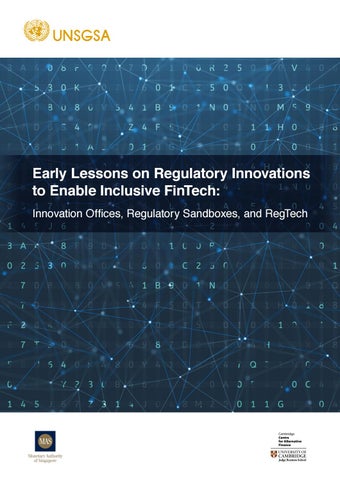
# Regulatory Sandboxes: Accelerating Innovation in the Online Gambling Sector
Recently, **regulatory sandboxes** have become crucial for facilitating innovation in **heavily regulated sectors**, such as **online gambling**. Stemming from the **fintech realm**, a regulatory sandbox serves as a controlled testing setting where new products, services, and business models can be trialed. Notably, these trials occur under the oversight of regulatory authorities, giving companies the temporary ability to function with minimal or modified regulatory restrictions.
By permitting businesses to test innovations without the immediate threat of fines or regulatory oversight, sandboxes create conditions conducive to innovation within **secure legal parameters**. In the online gambling industry—characterized by strict regulations around **data privacy**, **responsible gambling**, and **anti-money laundering (AML)**—regulatory sandboxes provide avenues for these sectors to trial pioneering solutions without circumventing essential consumer protections.
## The Importance of Regulatory Sandboxes in Online Gambling
The online gambling landscape is intricate and strictly regulated. Innovations like **blockchain payments**, **artificial intelligence (AI) for responsible gambling**, and new game formats hold the potential to transform the industry but also present considerable regulatory challenges. In this context, sandboxes function as testing grounds, allowing **regulators and businesses alike** to assess whether these innovations meet the criteria for **user protection** and **financial integrity**.
For instance, AI-based technologies can assist online platforms in identifying and addressing problematic gambling tendencies. Within a sandbox framework, operators can evaluate whether these algorithms comply with **data privacy legislation** while still delivering timely alerts regarding potential gambling addictions. Likewise, blockchain payment systems, known for their added transparency, pose regulatory challenges—especially concerning **anti-money laundering** issues. Regulatory sandboxes help connect innovative technologies with strict regulatory environments, fostering a **collaborative atmosphere** where businesses and regulators cooperate to safely implement innovation.
## How Nations are Utilizing Sandboxes to Encourage Innovation
Different countries have adopted distinctive strategies in integrating regulatory sandboxes into their online gambling frameworks. Here are a few noteworthy examples of how governments are harnessing sandboxes to boost technological progress while prioritizing **consumer safety** and **regulatory compliance**.
### United Kingdom
The **UK Gambling Commission (UKGC)** has taken a leading role globally in employing regulatory sandboxes, particularly regarding **responsible gambling**. Within the UK’s sandbox, businesses have explored AI systems designed to detect gambling behaviors likely to lead to addiction. These systems alert gambling operators to early warning signs while safeguarding users’ privacy rights. By collaborating closely with operators, the UKGC guarantees that such innovations align with the nation’s **player protection** regulations while enabling significant technological progress.
### Malta
As a key center for online gaming, the **Malta Gaming Authority (MGA)** has embraced regulatory sandboxes to promote innovations in **blockchain technology** and **payment solutions**. The MGA’s sandbox has piloted **blockchain payment methods** and **tokenized customer loyalty initiatives**, which promise to enhance transparency and boost customer engagement. Given that blockchain could raise **money laundering** risks, Malta’s testing framework is designed to ensure that these innovations adhere to its stringent AML guidelines.
### Australia
In Australia, the **Australian Communications and Media Authority (ACMA)** employs regulatory sandboxes with an emphasis on **customer protection strategies**. For instance, gambling firms have tested advanced **age verification** methods, ensuring these solutions are both effective and respectful of privacy. Furthermore, by trialing **responsible gambling messaging**, Australia confirms that initiatives aimed at minimizing gambling addiction are consistent with regulatory requirements as well as **player welfare**.
| **Country** | **Focus of Sandbox** | **Innovations Tested** |
|————-|———————————-|——————————————–|
| UK | Responsible Gambling | AI-based addiction detection algorithms |
| Malta | Blockchain and Payment Innovations | Blockchain payments, tokenized loyalty programs |
| Australia | Customer Protection | Age verification, responsible gambling initiatives |
Each country’s regulatory sandbox model is customized to address specific concerns and regulatory frameworks, showcasing the versatility and global relevance of the sandbox concept.
## Maintaining the Balance Between Innovation and Compliance
While sandboxes provide greater flexibility for companies, it is crucial to navigate the **complex legal landscape** surrounding online gambling. A core duty of regulators is to ensure **consumer protection**, ensuring that technologies aimed at generating profit in gambling do not jeopardize player safety. Regulatory entities consistently evaluate whether innovations, such as tools for **limiting bets** or **identifying compulsive behavior**, genuinely prioritize user safety without infringing on player autonomy or privacy.
### Tackling Data Privacy
**Data privacy** represents a significant legal challenge. Innovations like **personalized marketing** and **predictive analytics** often depend on personal information, placing them under intense scrutiny, particularly in light of laws such as the **EU’s General Data Protection Regulation (GDPR)**.